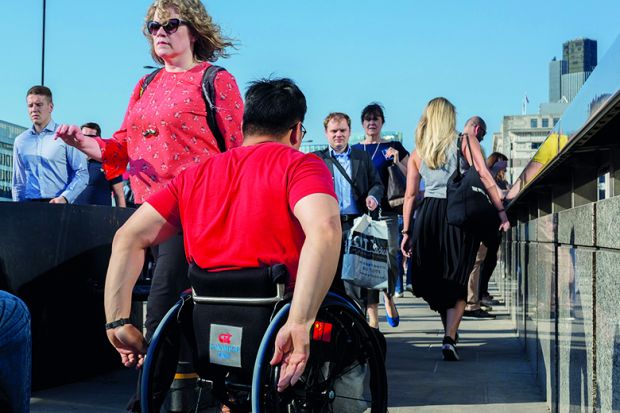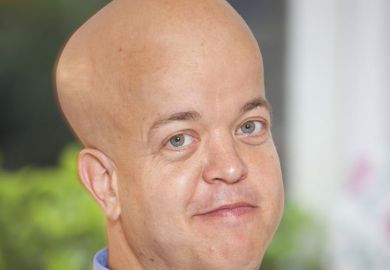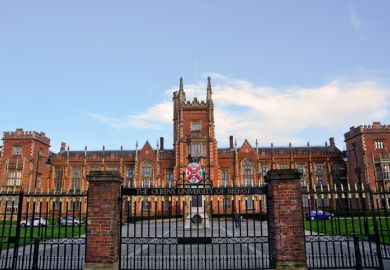UK higher education institutions should alter their timetables to better support disabled students, according to Chris Skidmore, the universities minister.
Mr Skidmore told Times Higher Education that he wanted “universities to show that they are a welcoming environment and that they have clearly thought through the needs of disabled students”.
“There are simple questions round timetabling. Disabled students say that there is often very little thought given to making sure that their timetabling ensures that they can get across the city in time to make a class,” he said.
Mr Skidmore also suggested that more universities could follow the lead of institutions that have located accessible accommodation close to lecture theatres.
He said that very few universities in the UK were “truly disabled student friendly” and that some students chose not to apply to particular institutions because disabled access was limited.
“There is so much more universities could be doing,” Mr Skidmore said.
His intervention follows the publication last year of a report by the Higher Education Policy Institute that said that universities should consider limiting the number of days that students are taught on campus to reduce the burden on learners who have to commute long distances, and contemplate shifting the timing of lectures and seminars to ensure that students do not have to travel at peak times.
The government, meanwhile, has announced that it will increase the cap on Disabled Students’ Allowance for postgraduate students from £10,993 to £20,000, starting from 2019-20.
This was to encourage more disabled students to study for a master’s or PhD, because the previous cap was insufficient to meet the living costs of postgraduate study while having a disability, Mr Skidmore said.
A Department for Education report on DSA published in February shows that 59 per cent of students who received the funding “wouldn’t feel confident of completing their course without it”.
However, it found that there was some confusion among students about what DSA was for and who was eligible to apply for it. DSA had a limited impact on disabled students’ decisions to go into higher education because awareness of it was quite low at the point that they were deciding on their applications, the report says.
Mr Skidmore said applications for DSA often weren’t submitted until students turn up at university and are made aware of the ability to apply for DSA. He acknowledged that this was an issue.
“There is a clear need for better communication around that. I don’t want disabled students thinking ‘maybe I won’t go to that university because it might be too difficult’, I want students to know that there [are] support packages for them,” the minister said.
Register to continue
Why register?
- Registration is free and only takes a moment
- Once registered, you can read 3 articles a month
- Sign up for our newsletter
Subscribe
Or subscribe for unlimited access to:
- Unlimited access to news, views, insights & reviews
- Digital editions
- Digital access to THE’s university and college rankings analysis
Already registered or a current subscriber?








